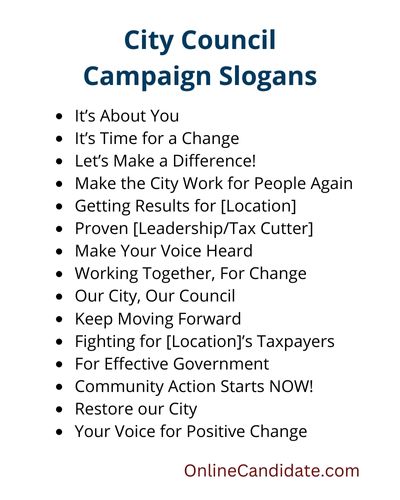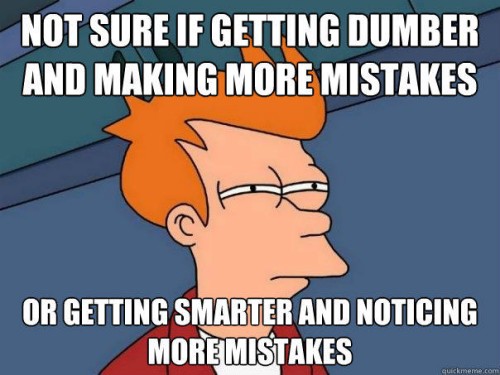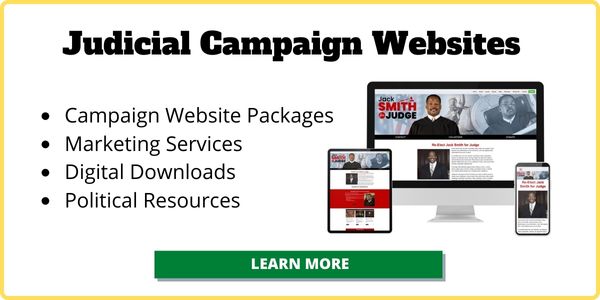Political Cybersquatting And Your Campaign
Domain squatting or cybersquatting is the term used for someone who registers a domain that infringes on another’s intellectual property or trademark. Some squatters attempt to sell names back to rightful owners for a profit, while others use the names to deceive. Political domain name squatting has grown in prevalence and can even be a dirty trick that effects local candidates.
 Celebrities have recaptured their own names that were being used as domain names. In most of the cases it turned out that the registrant (cybersquatter) was attempting to profit for the celebrity’s fame.
Celebrities have recaptured their own names that were being used as domain names. In most of the cases it turned out that the registrant (cybersquatter) was attempting to profit for the celebrity’s fame.
But what if you’re not famous (or famous enough) to argue that your own name is a trademarked term?
The U.S. Anticybersquatting Consumer Protection Act (ACPA) of 1999 is intended to provide protection against cyber squatting for individuals as well as owners of distinctive trademarked names. States have also taken action. For example, California passed the Political Cyberfraud Abatement Act which says that a person cannot register a domain that could potentially be used for political purposes intended to be used to mislead the public.
Even with these laws in place, some political campaigns still take extraordinary measures to preempt political cybersquatting. This may include registering anti-candidate or campaign names such as ‘smithsucks.com’.
The average local candidate probably does not need to take those precautions. However, it’s a good idea for a candidate to register his or her domain (and have a website ready) BEFORE they announce their intention to run for office.
We recommend, when possible, using the candidate’s name for the domain name – or a simple variation combining ‘elect’ or ‘vote’.
Try to secure the candidate name as a domain, even if you do not intend to use it during the election.
Typosquatting is where the intentional misspelling of an existing domain is registered. The traffic these sites get comes from typos made when a user types a website address into a web browser.
For candidate- and election-related domains, typosquatted domains are not always malicious. Some redirect to sites containing brand-damaging content, such as something disparaging about a candidate. Other times, they are used to redirect common misspellings of the domain back to the intended website. This is completely normal.
TIP: If you have a candidate or organization name that is difficult to spell or prone to misstyping, consider purchasing that misspelled domain and point it back to your website.
Dealing with political domain squatters
Assuming you are not famous enough to have your name equated with a brand, you still have a few options available.
- Go legal on them. Have an attorney send a letter demanding that they cease and desist all use of the domain name, and to transfer all rights of the domain name to the ‘rightful owner’. This alone might scare the squatters into giving up the name. We recommend that you consult with a trademark attorney that specializes in Internet law before sending a cease and desist letter. A risk in sending a letter to a domain name owner is that you may very well find any and all of your correspondence posted and discussed online.
- Ignore the problem. So they registered the candidate’s full name? So what? You move on to another domain and work with that. ‘ElectJohnSmith.com’ will probably work just as well as ‘JohnSmith.com’.
Keep an eye on any squatted domain name(s) and make sure it is not used for a website or used to redirect traffic to another website. If it does, you might want to go legal on them and report them to your local board of elections, particularly if there is malicious or deceitful intent.
There have been cases where a campaign insider or an outside supporter has registered a domain name with the intention of preventing the name from ‘falling into the wrong hands’. Then they turn the name over to the campaign when and if it is needed. Sometimes that works out best for everyone.
Odds are, if a political opponent registered a candidate’s name, they are probably doing it simply to harass the other side. They probably won’t even do anything with it. Using the squatted domain for an actual website or to direct the traffic elsewhere would probably cause more trouble than it’s worth.
Sometimes you’ll find some enterprising individual has snapped up a bunch of names related to your campaign. For example, they’ll offer to sell you ‘VoteJones.com’. But if your campaign is already using ‘ElectJones.com’, what’s the point of the second name? If you don’t want or need the name, let squatter keep the name and be out the registration fee.
Besides, you have better things to do than get hung up about a political cybersquatter. You have an election to win!
>> A variety of new political domain name TLDs are now available, including .democrat, .republican, .voting and more.
When you need to start your political domain name and website, consider Online Candidate. We combine the best of custom design and ease of use in one complete package.
A List of Our Best City Council Campaign Slogans
As a candidate running for town or city council, you’ll want to stand out from your opponents. Great campaign slogans helps keep candidates in the minds of voters. It’s often the first thing voters hear about someone, and often what they remember most.
As city council member, your actions gives you an active role in your community. Your election slogan should best reflect the priorities and major issues of your campaign.
Here is a list of our best slogan ideas for city council:
- It’s About You
- It’s Time for a Change
- Let’s Make a Difference!
- Make the City Work for People Again
- Getting Results for [Location]
- Proven [Leadership/Tax Cutter]
- Make Your Voice Heard
- Working Together, For Change
- Our City, Our Council
- Keep Moving Forward
- Fighting for [Location]’s Taxpayers
- For Effective Government
- Community Action Starts NOW!
- Your Vote, Your Voice
- Keep the Progress Moving
- Restore our City
- Your Voice for Positive Change
- Protecting Your Tax Dollars
- Right Time, Right Choice.
- New Leadership for a Better [Location]
- Fighting for Open Government
- Vote for a Better Tomorrow
- Standing Up For What’s Right
- Fighting for Our Families
- Serving People, Not Political Parties
- A Better City Starts Today
Voter turnout for city council or town elections can be low. This is because people tend to care more about the national and state races. However, local elections are just as important to a community and it’s quality of life.

Create a great slogan that speaks to voters
- Come up with a few of the most important issues facing your city or town. They may already be part of your campaign platform.
- Are there any hot topics that are of interest to voters and will inspire them to turn out at the polls? It might be taxes, local growth, traffic. Other issues include trust in local government, police and infrastructure.
- Brainstorm some slogan ideas and refine them.
- Select your final slogan and use it in your signs and print material.
Winning a city council election is are often determined by voter turnout, where one candidate manages to get more supporters to vote then their opponent. A catchy slogan can boost your exposure and help you win your election.
Related Posts
Handling Negative Posts About Your Campaign
Politics – and especially local politics – can be vicious, especially on the web. And if you are a candidate, watch out! You will certainly face some sort of abuse online. It may be in posts, comments, or even through memes and imagery.
Nasty things are posted on social media. Anonymous posts can be the worst. The temptation exists to do something about it.
In this post, we discuss how to handle online trolls and other assorted vermin.
Listen to this post here:
Most negative posts don’t really influence anyone and generally make the person making the nasty post look … well, nasty. In most cases, negative posts and comments likely have a small audience. They likely influence you more than anyone else.
When dealing with cyberbullies, it is best to not engage with them.
Sure, the posts or comments may contain blatant lies, phony allegations, and so on. But it’s important to handle these matters delicately, or else the situation can quickly spin out of control.
In most cases, simply ignore the posts. If a response is absolutely necessary, it’s best let someone outside of your campaign or organization respond. Whatever you do, don’t create new “personas” to support your positions on social media, in forums or on message boards. You’ll likely be caught – and that tends to make the situation worse!

Sometimes the criticism is justified
Perhaps while you posted from your mobile device, you made a misspelling or the autocorrect feature fouled up an important word. Hey, it happens to everyone.
You may get called out on a mistake like this. Someone may blow your blunder out of proportion and make a big deal about it. Hyperbole often runs rampant online.
So, how should you deal with it?
Just apologize and move on. You can correct a Facebook post, but for Twitter, you’ll need to either remove the original tweet or just add a comment explaining the problem. However, it’s probably better to delete and repost the proper message.
When posting, make sure you check your spelling and grammar. You may want to have someone else look at what you are posting before you hit the submit button.

Misspelling or a real word?
Responding to negative posts about your political campaign
If you are the person on the receiving end of criticism, it can be hard to figure out how to respond. Sometimes you’ll feel that you cannot respond in a way that is acceptable to everyone or actually address the issues raised.
Here are a few tips when responding to negative feedback about your campaign:
- Update your about section: Add comment rules in your page’s About section. This can include no profanity, abuse, etc. This gives you justification in blocking offensive users.
- Offensively block. Use the word block list in your Page settings for profanity and low-quality indicators.
- Take your time. You may want to lash out, but it’s all too easy to make things worse if you reply while you are angry.
- Kill them with kindness. It’s a lot easier to thank someone for their contribution than to try to debate them. Most online trolls post and move on. They probably won’t even see your reply.
- Use humor. You may be able to disarm a troll with a witty reply. One tip is to acknowledge the criticism, apologize for it, and make light of the situation.
- Encourage supporters to be positive and leave positive comments. To help to combat cyber-bullying and other forms of social media harassment, try to foster a supportive community that will actively engage with others by commenting on the campaign’s goals. Having people speak enthusiastically for your campaign can help it grow and develop without any negativity.
- Hide the offensive content and note your own online policy against such material.
As a last resort, you can block report the offender. Do this as a last resort if the poster’s material is especially bad. If a user breaks the terms of use of a social media service, they can be penalized. Don’t count on that happening, though.

Online trolls often hit and run.
Should politicians block people on social media?
You may be tempted to block people, but you should avoid doing this. Generally, public officials should not block people unless someone is clearly abusive or engaging in hate speech. A better tactic, as mentioned above, is to hide offensive comments while noting your online policy against such material.
In 2017, the Knight First Amendment Institute filed a lawsuit on behalf of several people who were blocked from former President Donald Trump’s Twitter account. The United States District Court for the Southern District of New York and the United States Court of Appeals for the Second Circuit both ruled that Trump could not block users, arguing that his Twitter account constituted a “public forum” under the First Amendment.
However, in January, 2021, Twitter removed Trump’s account from its platform. Without account access, Trump cannot block or unblock users. This fact may make the argument in Trump v. Knight First Amendment Institute moot as the case heads for review with the Supreme Court. As of this writing, the petition for review is still open.
In conclusion
Social media moves fast. It’s here, it’s gone, it’s usually forgotten. It if becomes an issue where the topic appears when someone searches for you on google, that’s a different problem.
While it’s practically impossible to make negative material disappear from online searches, positive web content (such as further social media posts, campaign website updates or online press releases) can be created to help push down negative publicity, making it less visible to searchers.
Running for office is difficult and requires a strong sense of perseverance. If you want to be a politician, you will often be attacked – from all sides. You’ll need to work hard and take criticism with a thick skin if you really want the job.
Want more tips for running an online campaign? Running for Office as an Online Candidate is our packed with tips and online strategies for campaigns and candidates.
So You Want To Run For Judge? Here’s How To Get Started
Judges in the U.S. make important decisions every day that can affect the lives of all citizens. If you’re going to run for judge, you will need to know what is needed to campaign for the office.
Here are some ideas of what to expect and how to prepare if you’re thinking about running a campaign for judge.
What types of judges are elected to office?
The role of a judge is to serve the public by making impartial decisions. Judges that are elected by voters serve for a limited period of time. While on the bench, they are expected to act as the unbiased authority on the law.
Some judges are elected by the people of the county they represent, but many of the most influential judges at the state level are appointed or approved by senior politicians. The types of judges that may run for office include:
- Municipal court judges
- County court judges
- Magistrates
- Justice of the peace
For locally elected judges, the specific rules regarding elections vary by state. Variables include the length of the term, when elections occur, and the maximum number of terms a judge can serve.

County and municipal judges and magistrates are often elected by voters.
What skills do you need to be a judge?
Judges play an integral part in our society. They have the responsibility of interpreting the law and applying it fairly to ensure that justice is done. This is difficult job, and judges need to be qualified for the position.
To become a judge, one must be licensed to practice law after receiving their J.D degree from an accredited institution. Lawyers or attorneys that want to become judges often have years trial experience and are familiar with the working of court. They may serve as either prosecutors or defense attorneys.
The qualities and skills of successful judges include:
- The ability to think logically and analytically
- To understand written case law
- An understanding of the human condition
- The ability to be unbiased and impartial
- To be respectful towards all parties in court
- To be patient, have a sense of humor, balanced, fair and open minded.
What does it mean to be a “Good” judge?
A good judge is someone who can take in information, organize it, and form a decision. This person would have to be unbiased, open minded, logical, and fair to all parties involved in a case.
Why do you want to run for the position?
There may be a number of reasons why you are interested in becoming a judge. It may be to hold a position of prestige and power. It might be because you care about the legal system and want to make it work better. At some point, you will be asked that question by a voter or reported. It’s better to have your reasons prepared ahead of time.
Common reasons why people run for judge:
- You want to play part in making the legal system work better for everyone.
- You value fairness and accountability in applying the law.
- You want to stand up for what is right, even if it not popular with public opinion or powerful moneyed interests.
- You want to see that the principles of the Constitution are upheld within the courts.
Whatever your reasons, you should be authentic in what you will stand for as a member of the judiciary.
Are judicial elections partisan or non-partisan?
It’s not necessary for the candidate to be affiliated with any political party when running for judge. Judges in the United States are usually required to be nonpartisan, meaning that they can’t show favoritism to a political party. Therefore, judges in this situation must remain non-partisan when they are campaigning for election.
However, some states allow judicial candidates to compete in partisan elections. The idea behind this is that it makes it easier for the public to hold judges accountable for their decisions.

Judicial elections are often non-partisan.
What are the requirements for becoming a judge?
The process of running for judge is not easy. There are certain requirements that must be met.
In most states, eligibility requirements depend on age, residency, and criminal conviction. Some states have additional requirements to run for office.
There are states which require the candidate to be a lawyer. Other states require the candidate only to have an active law license.
Additional requirements may include that the candidate must be a citizen, that they be a practicing lawyer or judge, and that they reside in the district where they seek the office.
And on top of that, they must win their election.
Running an effective election campaign
In some ways, running judicial campaign is similar to other political positions. For example, there are expenses such as printing costs, signage and advertising.
Many judicial candidates will build a campaign website to promote themselves. However, candidates are often limited as to when they can start the site and are subject to strict standards of conduct. For example, a judge must shut down their campaign site after they are seated to the bench.
There are many restrictions on judicial candidates, and they vary from state to state. For example, campaigning activities are often limited to specific time periods. They cannot receive donations from any parties or organizations with a stake in the case before them. They may be limited on how they can use social media.
Candidates running for judge are not allowed to use public funds for campaign purposes. They may also be limited as to when and how they can fund raise.
Judges often cannot actively seek endorsements from organizations or individuals. This is the most common way traditional political candidates gain visibility and credibility to help get elected.
Taking positions on the issues … or not
Judicial nominees are prohibited from taking a position on any issue that could potentially come before the courts because it could affect the way they might rule on cases with similar facts.
This limits the messaging options to general platitudes, and this is one of the reasons why judicial elections tend to be ‘boring’. Voters often know little about any candidates for judge, and simply cast a ballot for the candidate with the most name recognition.
Because name recognition is one of the most important factors in winning, judges need to do all they can to promote themselves. The most common ways to advertise are through mailings, radio and TV ads and online ads, such as IP targeting.
Now that you have a basic understanding of the qualifications required to run for judicial office, it’s time to start campaigning!
Related:
- So You Want To Run For Judge? Here’s How To Get Started
- A List of Our Best Judicial Campaign Slogans
- Local Election Laws And Your Campaign Website
- Judicial Logo Design
Start your judicial campaign website with Online Candidate. With simple pricing and easy to use features, we help hundreds of candidates each election cycle.
When Your Web Designer Disappears Mid-Campaign
Why every campaign needs control over their website—and what happens when you don’t.
Nothing stalls a campaign faster than being locked out of your own website. Maybe your web designer’s sick. Maybe they’re swamped. Or maybe—like we’ve seen too many times before—they quietly closed shop and didn’t bother to tell their clients.
When you’ve been in this business long enough, you hear some stories.
When the Designer Disappears
We’ve had clients come to us mid-campaign, unable to reach the person who originally built their site. The stories usually start the same way:
“A friend/volunteer offered to build our campaign website. They got it up and running (or didn’t finish it), and now I can’t get in touch with them to make any changes…”
Whether the designer meant well or simply vanished, the result is the same: the campaign’s stuck. That means no updates, no control, and no progress.
“Free” Isn’t Free When It Costs You Time
Sometimes the designer hasn’t disappeared—they’re just unresponsive. Maybe they’re juggling a day job. Maybe your campaign is last on their to-do list. That might not seem like a big deal at the start. But once the campaign heats up, that delay becomes a real problem.
If you need a message posted today and your designer says they’ll “get to it this weekend,” you’re in trouble.
You Need to Be in Control
A political campaign moves fast. Timing matters. When news breaks, voters and reporters go straight to the candidate’s website looking for a response or update.
You need to be able to log in and post what’s needed—without waiting on someone else’s schedule. That means having full access to your own website. When you don’t have that access, even small issues become big ones. A fundraiser link goes down, and no one can fix it. Your homepage still shows last month’s event. A news article mentions your campaign, but visitors land on a “Coming Soon” page. These are the situations that cost your campaign credibility, donations, and media opportunities.
Proper control also means owning your domain name. If you don’t, you don’t really own your online presence. We’ve also seen campaigns lose their domain names entirely—because they weren’t the ones who registered it. If the designer disappears or won’t cooperate, you may be forced to buy the domain back (if you’re lucky) or start over with a different URL. Same goes for your hosting account. If someone else owns it, they can shut down your site with one click—and you’re left scrambling.
In some of the worst cases we’ve seen, candidates had to register new domains and rebuild their entire site from scratch because their designer went missing. One client that came to us had to do that less than a month before Election Day. Not an ideal situation!
What You Can Do
Whether you use Online Candidate or go elsewhere, make sure of two things:
- You have full access to your site.
- You control your domain name and website login credentials.
Anything less is a risk your campaign doesn’t need.
A Better Way to Build
With Online Candidate, your campaign site is fast to launch, easy to update, and always in your hands.
Turnaround time is fast. A finished site can be ready within a few business days. With built-in tools and design customization, you don’t need to hire a separate web designer or programmer. You won’t be chasing down anyone for help. You’ll have the tools and access to update your site when it matters most.
Because when the race is on, there’s no time to go looking for a missing web designer.
Dos and Don’ts for Political Campaigns in 2023
To run a successful political campaign, being online isn’t an option. No matter the position being sought, digital campaigning is now firmly part of the political process. Fortunately, reaching voters through the web can be done through a variety of methods.
 Here are some of our best dos and don’ts for campaigning online in the 2023 election cycle.
Here are some of our best dos and don’ts for campaigning online in the 2023 election cycle.
Start early with your online campaign
There is a lot you can do online right now in preparation for your campaign. Begin or continue using social media, put material about yourself online and begin building your online reputation.
Don’t register the wrong domain name. Adding the year or position to the domain name can easily make the name irrelevant in the future. Using a non-specific domain, like a candidate’s name or ‘vote’ and name, can be reused over multiple campaigns.
Don’t commit to a domain name before you own it. Even if you are waiting to start creating your campaign website, do not commit to using your chosen domain name before you have secured it. There’s nothing worse than ordering campaign supplies listing a website that is wrong or, worse, owned by someone else. You don’t want to print a run of brochures or campaign signs with the the wrong website on them. Otherwise, you’ll be spending even more on stickers to correct the mistake.
Engage voters through social media
If you still think social media is still a fad, then you haven’t been paying attention to politics. Start early and get to know how it all works before your campaign kicks into high gear.
Social media has been a powerful tool for political campaigns at all levels. From viral hashtags and social media buzz to building an online community, social media is used as a marketing and engagement tool, as well as for fundraising.
Don’t think that political social media is a one-way medium. It’s a two-way street, and if you’re not willing to engage others online, then it really isn’t social. Listening provides insight and interaction drives engagement. It’s almost like building a real relationship, but online. Most politicians start their social media outreach with Facebook and Twitter. If you have the ability to maintain additional accounts, consider adding additional profiles, like Instagram.
- Social media has become more important than ever, especially after the start of the global pandemic in 2020, at it has all the ingredients for online campaigning: high engagement, low cost, and access to a wide variety of audiences. Tools like Facebook Live can help you run your campaign efficiently at little cost and with the ability to reach voters in alternative ways.
- Don’t overextend yourself. Getting on every social app out there may sound like a great idea, but if you don’t have the time or volunteers to maintain the platform, don’t bother doing it. Consider signing up for just a few accounts that will help you reach the largest number of voters and keep your message consistent across multiple platforms.
- Budget for digital advertising. Social media is a great tool that can help you connect with voters, but it’s no longer a place to throw up content without paying for the privilege. If you want exposure, you will need to dedicate some of your advertising budget toward online advertising and digital voter outreach.
- Get yourself authorized to advertise on Facebook and Google. If you plan to promote posts on Facebook or run pay per click or display ads on Google, you need to be authorized. It’s a process that changes frequently, but is absolutely necessary if you want to run ads on these platforms.

Invest in a campaign website
A website is a critical part of your online presence. It’s a place to inform voters, accept online donations, and act as a hub for social media and advertising efforts. Fortunately, the barriers to creating a website are low. There is no reason why candidates in local races should not have a campaign website. At Online Candidate, we work to make the process as simple and painless as possible.
Accept online donations. Integrating donation functionality into a website is not difficult these days. Third-party payment processors are a simple and affordable way to accept payments online. They also provide a quick and easy solution for accepting payments through your campaign website, social media and even offline. Before you start raising money, don’t forget to open your campaign bank account!
Don’t let visitors leave without a strong call to action. There are many reasons why people may leave your website. The most common ones are that they’re not seeing what they need or they don’t find what they’re looking for. It’s important to keep people engaged with your site so that they stay longer and take action. Every page of your website should ask for something. It can be a donation, a share, a volunteer request or even simple reminder to vote for you.
Do know the difference between your primary and general election. While nothing is ever really ‘deleted’ on the web, you may want to consider modifying or expanding your online messaging for the general electorate. ‘Red meat’ may get you through a primary, but a candidate usually has to attract more than just the base to win a general election.
While many candidates tack back ‘toward the center’ for a general election, this year we’ve seen candidates as far as to completely scrub their sites of certain topics and issues.
When it is time, wind down your online campaign properly. Don’t just ghost your accounts and leave everyone wondering what happened. Your supporters deserve acknowledgement and thanks.
Online Candidate websites include an easy-to-use interface, great custom design, and built-in tools designed specifically for political candidates. View our political website packages.











